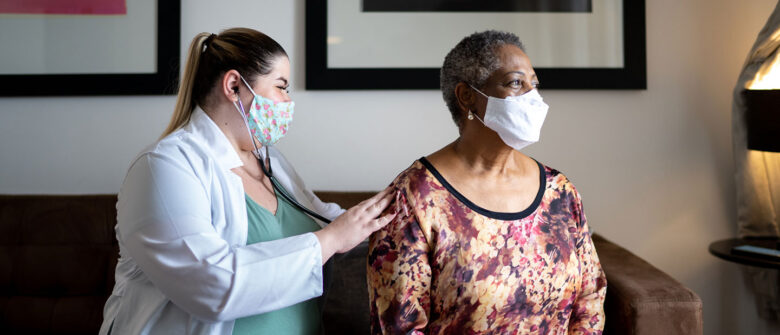
Bringing Care Home: The Rising Importance of Home-Based Nursing in Modern Healthcare
Table of Contents
In today\’s modern healthcare system, home-based nursing is becoming increasingly important. With more and more patients requiring specialized care in the comfort of their own homes, nurses are playing a critical role in providing quality medical support outside of traditional hospital settings.
Home-based nursing offers unique advantages for both patients and practitioners alike, from improved access to much-needed health services to greater flexibility for those who may not be able to travel or physically attend a hospital. This article will explore the various benefits of home-based nursing and discuss how it is transforming the way we think about healthcare delivery.
Key Considerations for Implementing Home-Based Nursing Services

In modern healthcare, home-based nursing services are becoming increasingly important. When it comes to implementing such programs, several key considerations must be taken into account.
The first is the availability and access to medical supplies and equipment which must meet certain standards for nurses to perform their duties effectively and safely. Additionally, providing appropriate training for nurses on how best to operate this equipment is essential for them to provide quality care. Moreover, the safety of both patients and caregivers must be ensured through adequate insurance coverage as well as proper protocols being followed by everyone involved in the process.
Finally, communication between all parties involved should remain open so that any potential issues can be identified early on before they become serious problems. All these factors need careful consideration when looking at bringing care home through home-based nursing services.
Challenges Faced in the Provision of Home-Based Healthcare

The provision of home-based healthcare has been growing in importance and prevalence among modern medical practices. Despite its efficacy, there are still several challenges that must be addressed before it can become a viable solution for all patients.
Accessibility to quality care is one of the main hurdles that need to be overcome. Many areas lack enough professionals or resources to ensure that those who require home-based nursing receive appropriate care when needed.
Another challenge relates to maintaining continuity of care for long-term treatments or conditions; as nurses rotate shifts, ensuring patient safety may become difficult if adequate communication between them is not established beforehand. In addition, many insurance providers do not cover home-based nursing services as they tend to cost significantly more than traditional hospital visits and procedures while providing fewer tangible benefits from their perspective.
Finally, cultural attitudes towards receiving treatment at home can make it difficult for some individuals or families to accept such options as an alternative option even though it could prove beneficial in the long run. The combination of these factors makes tackling each issue separately essential for the full potential of home-based healthcare services to be realized.
Strategies to Enhance Patient Outcomes with Home-based Nursing Care

The importance of home-based nursing care in modern healthcare is undeniable, with positive effects on patient outcomes. To maximize the efficacy of this type of healthcare, it is essential to create a strategy that ensures the best possible outcome for patients.
Here are some key strategies to consider when implementing home-based nursing care: 1) Collaboration between different medical professionals – An effective strategy for maximizing patient outcomes through home-based nursing requires collaboration between nurses, physicians, and other medical personnel. By working together as a team, they can develop an individualized plan that takes into account each patient’s specific needs and circumstances.
2) Utilizing technology – With today’s technological advances, nurses can access vital information about their patients from anywhere at any time. This allows them to provide more efficient care and support for their patients by being able to monitor them remotely or even have remote consultations when needed.
3) Education & training – Educating both patients and their families on proper self-care techniques such as diet and exercise will help ensure better long-term health outcomes for those receiving home-based care. Additionally, providing regular training opportunities for nurses helps ensure optimal performance in delivering quality nursing services at all times.
4) Use of evidence-based practice – Evidence-based practice involves using data gathered from research studies along with clinical experience to inform decisions related to treatment plans or interventions used in the delivery of care. Utilizing this approach provides greater assurance that treatments prescribed are backed by scientific evidence which ultimately leads toward improved patient outcomes while also reducing costs associated with unnecessary procedures or medications used unnecessarily due to lack of knowledge regarding alternative approaches that could produce better results over time.
Conclusion
Home-Based Nursing is an increasingly important part of modern healthcare as more and more care shifts to the home environment. This shift has been driven by both technological advancements, such as telehealth platforms, and a greater emphasis on patient autonomy.
Home-Based Nurses provide a broad range of services including health assessments, treatments, education, and support to patients in their own homes. By providing care outside of traditional clinical settings they allow for improved patient comfort while reducing administrative costs associated with hospital visits.
With the rising importance of Home-Based Nursing in modern healthcare, it is clear that this field will continue to grow over the coming years and become a vital component of quality health care delivery moving forward.
